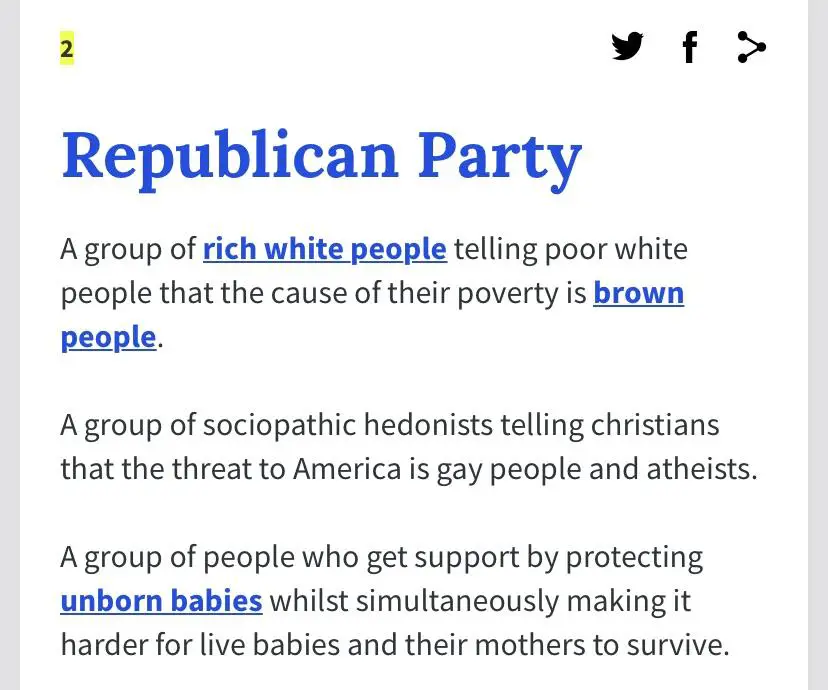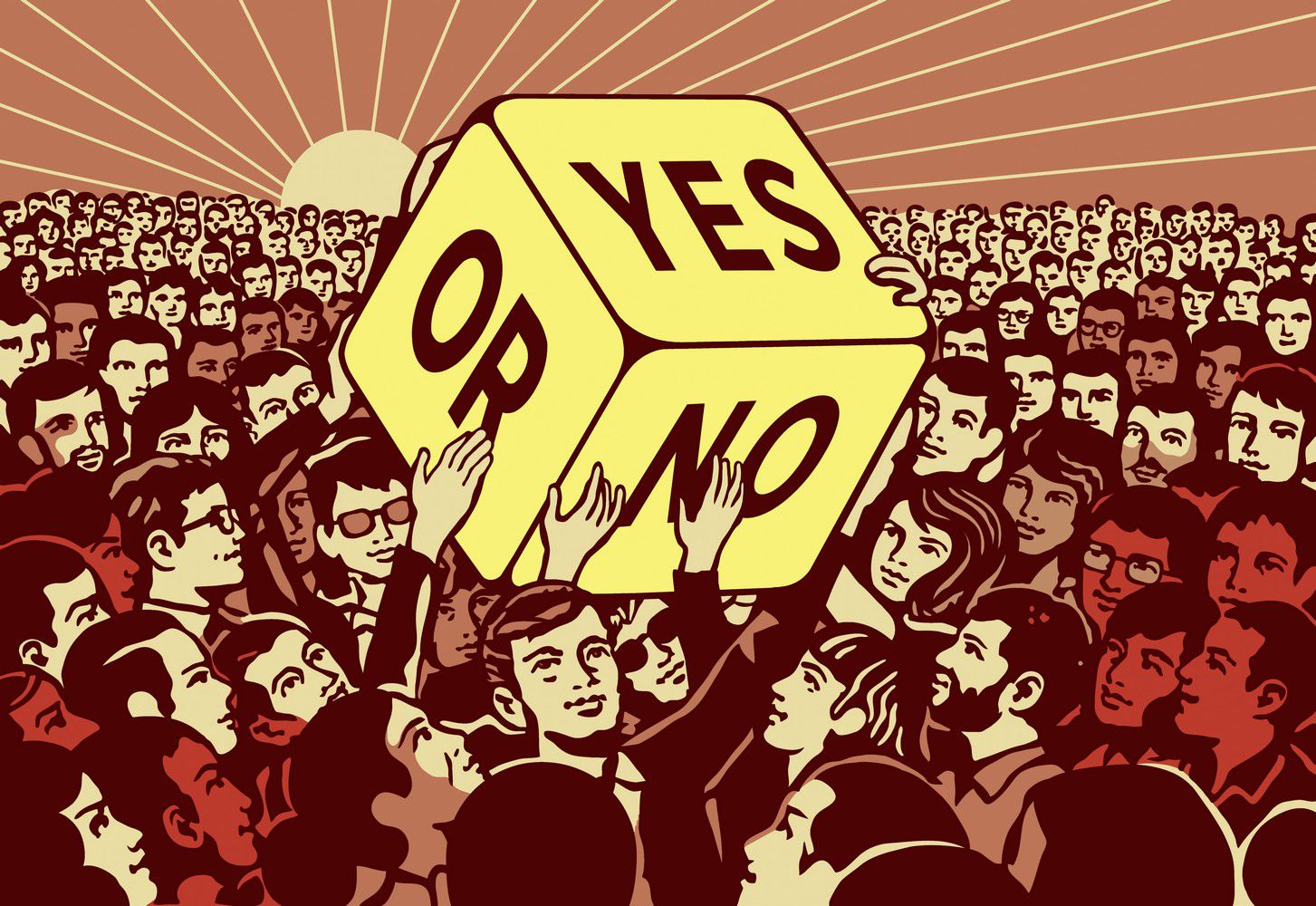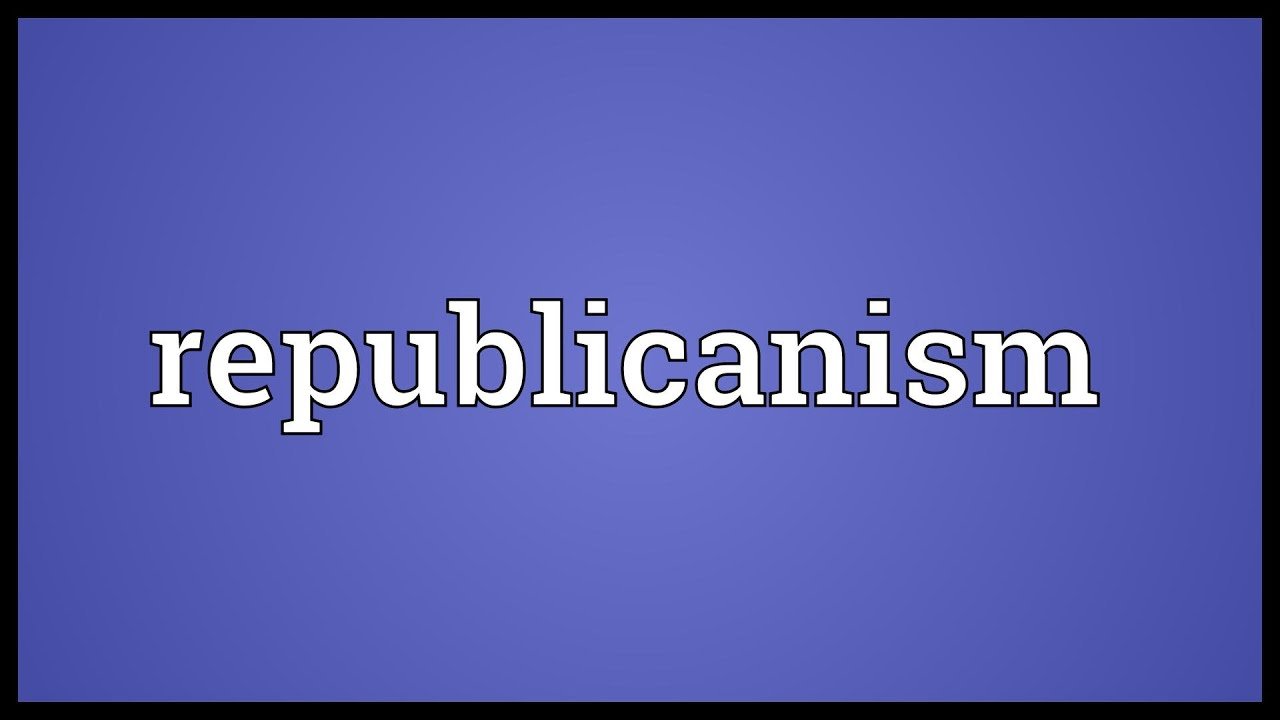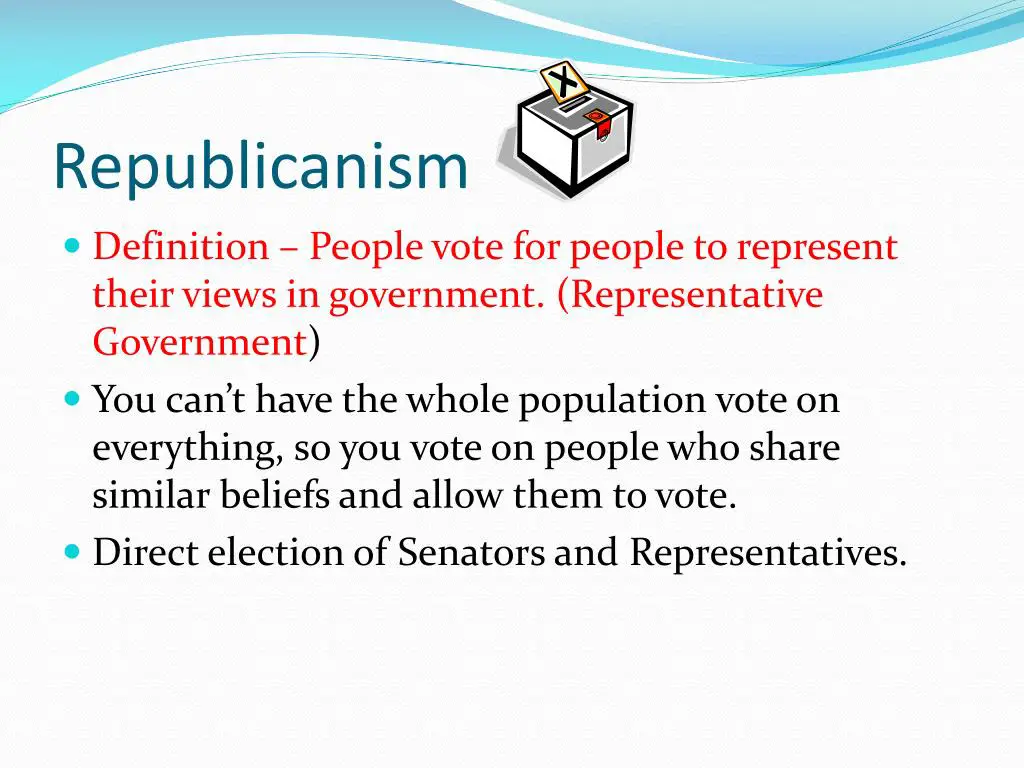Democracy’s Discontent: America In Search Of A Public Philosophy
In this book, Sandel contrasts the tradition of civic republicanism with that of procedural liberalism in the US political history. The presentation is organized as the intertwining of philosophical and mostly historical analyses. Philosophically, based on LLJ, Sandel continuous his criticism of liberalism and argues for the idea of civic republicanism with the sense of multiply situated selves. Historically, Sandel shows, while both procedural liberalism and civic republicanism used to be present throughout American politics, American political discourse, in the recent decades, has become dominated by procedural liberalism, and has steadily crowded out the republican understandings of citizenship, which is important for self-government.
Sandel reminds us that the American Revolution was originally aspiring to generate a new community of common good. By separating from England, Americans attempt to stave off corruption and to realize republican ideals, to “renew the moral spirit that suited Americans to republican government” . Unfortunately, in the years following independence, leading politicians and writers started to worry the corruption of the public spirit by the rampant pursuit of luxury and self-interest. Nowadays, most of American practices and institutions have thoroughly embodied the philosophy of procedural liberalism. Despite its philosophical problem, it has offered the public philosophy by which Americans live.
Republicanism In The Thirteen British Colonies In North America
Republicanism in the United States
In recent years a debate has developed over the role of republicanism in the American Revolution and in the British radicalism of the 18th century. For many decades the consensus was that liberalism, especially that of John Locke, was paramount and that republicanism had a distinctly secondary role.
The new interpretations were pioneered by J.G.A. Pocock, who argued in The Machiavellian Moment that, at least in the early 18th century, republican ideas were just as important as liberal ones. Pocock’s view is now widely accepted.Bernard Bailyn and Gordon Wood pioneered the argument that the American founding fathers were more influenced by republicanism than they were by liberalism. Cornell University professor Isaac Kramnick, on the other hand, argues that Americans have always been highly individualistic and therefore Lockean.Joyce Appleby has argued similarly for the Lockean influence on America.
In the decades before the American Revolution , the intellectual and political leaders of the colonies studied history intently, looking for models of good government. They especially followed the development of republican ideas in England. Pocock explained the intellectual sources in America:
The commitment of most Americans to these republican values made the American Revolution inevitable. Britain was increasingly seen as corrupt and hostile to republicanism, and as a threat to the established liberties the Americans enjoyed.
Basic Principles Of Republican Government In The United States
The republican government in the United States has a few basic principles:
- The power and authority of government comes from the people, not some supreme authority, or king.
- The rights of the people are protected by a written constitution and through the vote of the people.
- The citizens give power to elected representatives, based on majority rule, to serve their interests and act on their behalf.
- The representatives are responsible for helping all the people in the country, not just a few people.
- The stability of government rests with the people and is dependent on civic involvement.
The Constitutive Notion Of Civic Republicanism: Pettit
Insofar as republican freedom is tied to power, it is essentially egalitarian. It is held to protect each individual against arbitrary power, and also to be a ‘communitarian good,’ allowing people to identify with a state that protects their freedom. This version of republican freedom is heavily influenced by Rousseau, purged of totalitarian accretions, and updated to the advanced capitalist societies of the late twentieth century. They are now explicitly inclusive, bestowing their benefits on all members of society, and also multicultural, displaying liberal neutrality toward different substantive conceptions of the good. How far such societies can provide a stable balance between the participatory core of republican freedom and the centrifugal drives of modern pluralism remains to be seen.
Andrew Tsz Wan Hung, inInternational Encyclopedia of the Social & Behavioral Sciences , 2015
Understand The Factions Of Conservative Republicans

Understand the factions of conservative republicans. Conservative republicans are broken into different groups, based on the policy or issue at hand. A person might not be conservative on all issues, but is still considered a conservative republican based on his or her beliefs and practices in one certain area.
The British Empire And The Commonwealth Of Nations
In some countries of the British Empire, later the Commonwealth of Nations, republicanism has taken a variety of forms.
In Barbados, the government gave the promise of a referendum on becoming a republic in August 2008, but it was postponed due to the change of government in the 2008 election. A plan to becoming a republic was still in place in September 2020, according to the current PM, with a target date of late 2021.
In South Africa, republicanism in the 1960s was identified with the supporters of apartheid, who resented British interference in their treatment of the country’s black population.
In Australia, the debate between republicans and monarchists is still active, and republicanism draws support from across the political spectrum. Former Prime Minister Malcolm Turnbull was a leading proponent of an Australian republic prior to joining the centre-right Liberal Party, and led the pro-republic campaign during the failed 1999 Australian republic referendum. After becoming Prime Minister in 2015, he confirmed he still supports a republic, but stated that the issue should wait until after the reign of Queen Elizabeth II. The centre-left Labor Party officially supports the abolition of the monarchy and another referendum on the issue.
Republicanism in BarbadosRepublicanism in the NetherlandsRepublicanism in Spain
Which Republican President Inspired The Teddy Bear
Theodore Roosevelt, a Republican U.S. president from 1901 to 1909, inspired the teddy bear when he refused to shoot a tied-up bear on a hunting trip. The story reached toy maker Morris Michtom, who decided to make stuffed bears as a dedication to Roosevelt. The name comes from Roosevelt’s nickname, Teddy.
See all videos for this article
Republican Party, byname Grand Old Party , in the United States, one of the two major political parties, the other being the Democratic Party. During the 19th century the Republican Party stood against the extension of slavery to the country’s new territories and, ultimately, for slavery’s complete abolition. During the 20th and 21st centuries the party came to be associated with laissez-fairecapitalism, low taxes, and conservative social policies. The party acquired the acronym GOP, widely understood as “Grand Old Party,” in the 1870s. The party’s official logo, the elephant, is derived from a cartoon by Thomas Nast and also dates from the 1870s.
Identify And Believe Like The Fiscal Conservatives
Identify and believe like the fiscal conservatives. The fiscal conservatives are based around money and government. They want the government to be smaller and to reduce its spending. The government will have less power over the people. The national debt will be repaid. Fiscal republicans are also for privatizing social security.
What Defined Republicanism As A Social Philosophy
What defined republicanism as a social philosophy? Citizenship within a republic meant accepting certain rights and responsibilities as well as cultivating virtuous behavior. This philosophy was based on the notion that the success or failure of the republic depended upon the virtue or corruption of its citizens.
Republicanism In The United States Facts For Kids
Kids Encyclopedia FactsRepublican Party republicRoman Republicelectedappointedvetoeschecks and balances
Republicanism in the United States is a set of ideas that guides the government and politics. These ideas have shaped the government, and the way people in the United States think about politics, since the American Revolution.
The American Revolution, the Declaration of Independence , the Constitution , and even the Gettysburg Address were based on ideas from American republicanism.
“Republicanism” comes from the word “republic.” However, they are not the same thing. A republic is a type of government . Republicanism is an ideology – set of beliefs that people in a republic have about what is most important to them.
What Is The Definition Of Republican Government
The adjective republican describes a government made up of representatives who are elected by the citizens. If you live in the United States, you’re part of a republican system of government. In a republican government, citizens have a lot of power — their vote determines who is running the government.
So Is The United States A Democracy Or Republic
For all practical purposes, it’s both. In everyday speech and writing, you can safely refer to the US as a democracy or a republic. If you want or need to be more precise in referring to the system of the US, you can accurately call it a representative democracy. And should you need to be exacting? The US can be called a federal presidential constitutional republic or a constitutionalfederal representative democracy.
What you should take away in the confusion over democracy vs. republic is that, in both forms of government, power ultimately lies with the people who are able to vote. If you are eligible to vote—vote. It’s what, well, makes true democracies and republics.
Exercise that right to vote, whether by mail or in person. Want more information on what mail-in voting means? Read our article on absentee vs. mail-in ballots!
- *
What Does Republicanism Mean In Your Own Words

Republicanism is the ideology of governing a nation as a republic with an emphasis on liberty and the civic virtue practiced by citizens. More broadly, it refers to a political system that protects liberty, especially by incorporating a rule of law that cannot be arbitrarily ignored by the government.
Is The United States A Republic Or A Democracy
The following statement is often used to define the United States’ system of government: “The United States is a republic, not a democracy.” This statement suggests that the concepts and characteristics of republics and democracies can never coexist in a single form of government. However, this is rarely the case. As in the United States, most republics function as blended “representational democracies” featuring a democracy’s political powers of the majority tempered by a republic’s system of checks and balances enforced by a constitution that protects the minority from the majority.
To say that the United States is strictly a democracy suggests that the minority is completely unprotected from the will of the majority, which is not correct.
What Is The Best Definition Of Republicanism
Republicanism is a political ideology centered on citizenship in a state organized as a republic. Historically, it ranges from the rule of a representative minority or oligarchy to popular sovereignty. … Republicanism may also refer to the non-ideological scientific approach to politics and governance.
Democracy Vs Republic: Is There A Difference
You probably hear countries like the United States or France referred to as democracies. At the same time, you probably also hear both of these countries called republics. Is that possible? Are democracies and republics the same thing or different?
We don’t blame you for confusing these two terms. With a major and heated US election underway, it’s the perfect time for some Government 101. Let’s brush up on these two words to see what they have in common—and what sets them apart.
Constitutional Republic Example In Obamacare
There are several examples of constitutional republic being under attack through lawsuits. These types of situations typically arise when the majority passes a law through their representatives, yet other citizens claim the law is unconstitutional. Perhaps one of the most prominent examples of this in recent history is the challenging of the Affordable Care Act at the Supreme Court level.
Congress passed the Affordable Care Act , which went into effect in March, 2010. The purpose of the ACA was to provide health insurance to millions of Americans who were not covered. It also sought to limit the extent to which citizens could seek health care services for which they could not – or did not – pay.
Shortly after the ACA was passed, several states and organizations – led by the state of Florida – brought lawsuits before the United States District Court in Florida, claiming that the ACA was unconstitutional. Individuals Kaj Ahburg and Mary Brown also jumped on board as plaintiffs in the case.
The group’s claims were based on a number of grounds, among them was the claim that the requirement for employers to purchase health insurance for their employees interfered with state sovereignty, or the right of the state to remain independent and have control over its own decisions.
Constitutional Monarchs And Upper Chambers
Some countries turned powerful monarchs into constitutional ones with limited, or eventually merely symbolic, powers. Often the monarchy was abolished along with the aristocratic system, whether or not they were replaced with democratic institutions . In Australia, New Zealand, Canada, Papua New Guinea, and some other countries the monarch, or its representative, is given supreme executive power, but by convention acts only on the advice of his or her ministers. Many nations had elite upper houses of legislatures, the members of which often had lifetime tenure, but eventually these houses lost much power , or else became elective and remained powerful.
What Is A Republican Republican Definition
April 11, 2014 By RepublicanViews.org
This article fully answers what a Republican is and gives the definition of a Republican in a fair, unbiased, and well-researched way. To start the article we list out the definition of a Republican, then we cover the Republican Party’s core beliefs, then we list out the Republican Party’s beliefs on all the major issues.
The Definition of a Republican: a member of the Republican party of the U.S.
Classical Republicanism And Natural Rights
Classical republicanism promoted the natural rights philosophy, which is echoed in the Declaration of Independence. Natural rights are those rights that are not dependent on, nor can they be changed by, manmade laws, cultural customs, or the beliefs of any culture or government. These rights include such things as life, liberty, and the pursuit of happiness. Other natural rights include the right to protect oneself from physical harm, the right to worship as one chooses, the right to express oneself, among others.
The reason why classical republicanism is so prevalent in the Declaration of Independence is because of the colonists’ recognition of the fact that they wanted their government to be vastly different from that of the British parliament. They believed that they were following their civic duty by separating from Britain for the purposes of preserving the “common good.”
Republican Liberty: Problems And Debates

The appeal of the republican conception of political liberty asindependence from the arbitrary power of a master is perhapsunderstandable. This is not to say, however, that this conception isuncontroversial. Before discussing its role in developing contemporarycivic republican arguments, we should consider various problems anddebates surrounding the republican idea of freedom.
What Is The Best Example Of An Oligarchy
Examples of a historical oligarchies are Sparta and the Polish-Lithuanian Commonwealth. A modern example of oligarchy could be seen in South Africa during the 20th century. Here, the basic characteristics of oligarchy are particularly easy to observe, since the South African form of oligarchy was based on race.
What Does The Republican Party Stand For
The Republican Party was initially created to advocate for a free-market economy that countered the Democratic Party’s agrarian leanings and support of slave labour. In recent history, the Republicans have been affiliated with reducing taxes to stimulate the economy, deregulation, and conservative social values.
Examples Of Republicanism In A Sentence
republicanism CNNrepublicanismThe New Republicrepublicanism WSJrepublicanismCNNrepublicanism WSJrepublicanismThe New York Review of Booksrepublicanism The New York Review of BooksrepublicanismThe New York Review of Books
These example sentences are selected automatically from various online news sources to reflect current usage of the word ‘republicanism.’ Views expressed in the examples do not represent the opinion of Merriam-Webster or its editors. Send us feedback.
What Is The Idea Of Republicanism Apush
the ideology of governing the nation as a republic, where the head of state is not appointed through hereditary means, but usually through an election , A philosophy of limited government with elected representatives serving at the will of the people. The government is based on consent of the governed.
Political Liberty Positive And Negative
It is notorious that there are several competing conceptions ofpolitical liberty. The now standard account was laid down mostinfluentially by Isaiah Berlin in his famous lecture on “TwoConcepts of Liberty” . According to the first,‘negative’ conception of liberty, people are free simply tothe extent that their choices are not interfered with. There are manyvariations on this conception, depending on how exactly one wants todefine ‘interference’, but they all have in common thebasic intuition that to be free is, more or less, to be left alone todo whatever one chooses. This idea of negative liberty Berlinassociates especially with the classic English political philosophersHobbes, Bentham, and J. S. Mill, and it is today probably the dominantconception of liberty, particularly among contemporary Anglo-Americanphilosophers. In Mill’s well-known words, “the only freedomwhich deserves the name, is that of pursuing our own good in our ownway, so long as we do not attempt to deprive others of theirs”.
The troubling implications of the positive conception of liberty arewell-known, and need not be rehearsed at length here. For the most part, thesestem from the problem that freedom in the positive sense would seem tolicense fairly extensive coercion on behalf of individuals’allegedly ‘real’ interests—for example, coercivelyforcing the gambler to quit on the presumption that this is, in fact,what he really wants to do . Regardingthis danger, Berlin writes:
Republicanism Law And Legal Definition
Republicanism is the imaginary or visionary theorization of governing a nation as a republic. It refers to a form of government where the head of state is appointed for a specific period by means of elections. These leaders, rather than a select aristocracy make laws for the benefit of the entire republic. The exact meaning of republicanism varies depending on the cultural and historical context. However, in an ideal republic, head of the state are selected from among the working people; they serve the republic for a defined period, and then return to their work. The key conceptions of republicanism includes the importance of civic virtue, the benefits of universal political participation, the dangers of corruption, the necessity of separate powers and a healthy attitude for the rule of law.
The equality of the rights of citizens is a principle of republicanism. Every republican government is in duty bound to protect all its citizens in the enjoyment of this principle, if within its power. The duty was originally assumed by the States, and it still remains there..
Republicanism Example In Rhode Island
An example of republicanism disputes involved the state of Rhode Island, and came about in 1841. At that time, Rhode Island’s government was still operating under the outdated terms established in 1663 by a royal charter. This charter placed a strict restriction on who was allowed to vote, and didn’t allow for amendments to the law. Groups who were protesting the charter held a convention to enforce the drafting of a new constitution, as well as to overthrow the state government and elect a governor. This movement was known as the “Dorr Rebellion.”
The rebellion started off as a peaceful political protest, but it ultimately turned violent. As a result, the old charter government declared martial law for the area, meaning that a temporary law was imposed and enforced by military forces. Martial law is typically only imposed when the civilian government has been declared broken, or during times of civil unrest.
The state legislature required that federal troops be dispatched to the area to break up the rebellion, but President John Tyler ultimately decided not to send the soldiers in because he felt that the threat of domestic violence was fading significantly as time went on. The rebellion was squashed when Dorr decided to disband the group, after realizing that he would ultimately be defeated in battle by the approaching militia.
Republican Freedom And The Human Good

So far we have assumed that, however ultimately defined, republicanfreedom is always a good thing. Some have wondered whether this is thecase, however. This objection is most often expressed via the exampleof benevolent care-giving relationships. On the republican view thatone enjoys freedom only to the extent that one is independent fromarbitrary power, it would seem that children do not enjoy republicanfreedom with respect to their parents. But surely, one might suppose,the parent-child relationship is an extremely valuableone, and so we would not want greater republican freedom in such acontext. Republican freedom is, perhaps, not always a good thing.
What Is Republicanism In Simple Terms
Republicanism is the ideology of governing a nation as a republic with an emphasis on liberty and the civic virtue practiced by citizens. … More broadly, it refers to a political system that protects liberty, especially by incorporating a rule of law that cannot be arbitrarily ignored by the government.
What Is The Significance Of Oligarchy
The people in this group do not have to be related and their power is most often based on wealth and/or power. The significance of an oligarchy is that these people are only able to get what they want through the formation of an oligarchy and these people hold absolute and unchallengeable authority.
Definition Of A Republican Government
I pledge allegiance to the flag of the United States of America and to the republic for which it stands… Most Americans grew up reciting the Pledge of Allegiance in school, but just what is a republic?
The word republic, comes from the Latin res publica, or public thing, and refers to a form of government where the citizens act for their own benefit rather than for the benefit of a ruler or king. A republican government is one in which the political authority comes from the people. In the United States, power is given to the government by its citizens as written in the U.S. Constitution and through its elected representatives.
Belief in republicanism helped bring about the American Revolution and the United States Constitution. The American colonists were influenced by the writings of Thomas Paine. In his 50-page pamphlet Common Sense, written in 1776, Paine made the argument for political independence from Britain, a representative government, and a written constitution for the colonies. Paine felt the monarch had no place in government and that the people themselves were the legitimate authority for government.
An error occurred trying to load this video.
Try refreshing the page, or contact customer support.
Advantages Of A Republican Government
Have you ever given up your own interests to do something that is good for everyone? In a republican government, selfish interests are given up for the common good of the country. Let’s take a look at more advantages of a republican government.
- Laws made by elected representatives are meant to be fair. If people find laws unfair, they can elect other leaders who can change those laws.
- A republic allows greater freedom and prosperity. Economic pursuit benefits the entire nation and people are able to live well.
- When government serves the interests of the entire country, we say it is serving the common welfare.
- There is wider participation in the political process. According to the Declaration of Independence, all men are created equal; therefore, it did not matter if you were a small farmer or a powerful aristocrat. Ordinary people are welcome to participate in government.
- Leaders emerge based on people’s talents, not their birthright.
- Civic virtue is promoted. Civic virtue includes demonstrating civic knowledge , self-restraint, self-assertion, and self-reliance.
- Change and reform come about by vote, not by force.
Attributes Of A Republican Government
- Power and authority in the government come from the people
- Rights of the citizens are protected through a constitution and voting
- Power is distributed to representatives based on majority rule
- Representatives are responsible for helping everyone in the country and not just a few people
- The involvement of people in the government is what guarantees government stability
- Rulers are chosen for their skills and do not gain power based on birthright
- Civilians participate in the government processes
- The country’s economic pursuits benefit the whole nation
Examples Of Republican In A Sentence
RepublicanRepublicansRepublican Partyrepublicanrepublicans National Reviewrepublican NBC Newsrepublicans NBC Newsrepublicans BostonGlobe.comrepublicansNBC Newsrepublicans WSJrepublicans The Economistrepublicans Indianapolis Starrepublican The New Republicrepublican The Economistrepublican Bloomberg.comrepublican The Atlanticrepublican Harper’s BAZAARrepublican BostonGlobe.comrepublican The New Republicrepublican BostonGlobe.com
These example sentences are selected automatically from various online news sources to reflect current usage of the word ‘republican.’ Views expressed in the examples do not represent the opinion of Merriam-Webster or its editors. Send us feedback.
Key Takeaways: Republic Vs Democracy
- Republics and democracies both provide a political system in which citizens are represented by elected officials who are sworn to protect their interests.
- In a pure democracy, laws are made directly by the voting majority leaving the rights of the minority largely unprotected.
- In a republic, laws are made by representatives chosen by the people and must comply with a constitution that specifically protects the rights of the minority from the will of the majority.
- The United States, while basically a republic, is best described as a “representative democracy.”
In a republic, an official set of fundamental laws, like the U.S. Constitution and Bill of Rights, prohibits the government from limiting or taking away certain “inalienable” rights of the people, even if that government was freely chosen by a majority of the people. In a pure democracy, the voting majority has almost limitless power over the minority.
The United States, like most modern nations, is neither a pure republic nor a pure democracy. Instead, it is a hybrid democratic republic.
The main difference between a democracy and a republic is the extent to which the people control the process of making laws under each form of government.
Founding Father James Madison may have best described the difference between a democracy and a republic:
Constitutional Republic Vs Democracy

Some believe that the United States is a democracy, but it is actually the perfect example of a constitutional republic. A pure democracy would be a form of government in which the leaders, while elected by the people, are not constrained by a constitution as to its actions. In a republic, however, elected officials cannot take away or violate certain rights of the people. The Pledge of Allegiance, which was written in 1892 and adopted by Congress in 1942 as the official pledge, even makes reference to the fact that the U.S. is a republic:
“I pledge allegiance to the flag of the United States of America, and to the Republic, for which it stands, one nation under God, indivisible, with liberty and justice for all.”
The Anti-Federalists and Federalists, as the new nation was being formed, could not agree on how involved the federal government should be in citizens’ lives; a decision on a pure democracy could never be reached. Alexander Hamilton, himself a Federalist, stated that the government being created was a “republican government,” and that true freedom would not be found in a dictatorship nor a true democracy, but in a moderate government.
The following table outlines some of the differences between a constitutional republic and a democracy:
Republicanism And Fundamental Rights
The foregoing discussion should not be construed as implying a necessary correlation between, on the one hand, liberalism and democracy, and, on the other, communitarianism and authoritarianism. Some versions of communitarianism approach a pure, popular democracy more closely than do some versions of liberalism, which would expressly renounce pure democracy. If a society is to be governed by a principle of collective welfare, and if notions of collective welfare are to be ascertained by consensus, then majority rule provides sufficient justification for deciding which acts should be penalized. No additional justification, with reference to the specific harm that would be caused by penalized acts, would be required. If the majority wishes to penalize gambling, alcohol consumption, flag burning, contraception, or homosexuality, then it may do so with no greater notion of harm than the sentiment that individuals and society would be better off without such things.
| Ordinary right | ||
|---|---|---|
| Putative harm caused by exercise of right | Exercise of right may be penalized without special justification | Exercise of right may not be penalized without special justification |
Wilfried Nippel, inInternational Encyclopedia of the Social & Behavioral Sciences , 2015
Republicanism In The United Kingdom
Republicanism in the United Kingdom is the political movement that seeks to replace the United Kingdom‘s monarchy with a republic. Supporters of the movement, called republicans, support alternative forms of governance to a monarchy, such as an elected head of state, or no head of state at all.
Monarchy has been the form of government used in the countries that now make up the United Kingdom almost exclusively since the Middle Ages. A republican government existed in England and Wales, later along with Ireland and Scotland, in the mid-17th century as a result of the Parliamentarian victory in the English Civil War. The Commonwealth of England, as the period was called, lasted from the execution of Charles I in 1649 until the Restoration of the monarchy in 1660.
What Are The Ideas Of Republicanism
It stresses liberty and inalienable individual rights as central values; recognizes the sovereignty of the people as the source of all authority in law; rejects monarchy, aristocracy, and hereditary political power; expects citizens to be virtuous and faithful in their performance of civic duties; and vilifies …
